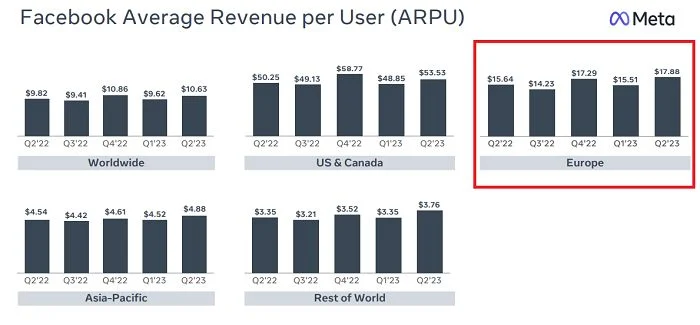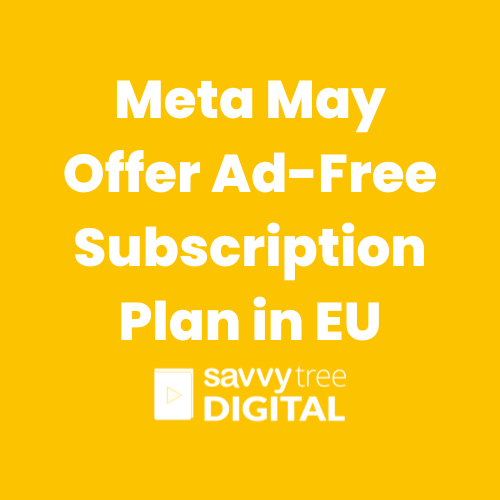Meta CEO Mark Zuckerberg has long insisted that Facebook will remain a free service, but new EU regulations could restrict Meta’s ability to collect user data for ad targeting. This has led Meta to consider offering paid versions of Facebook and Instagram in the EU that would allow users to opt out of ads and personal data usage altogether.
According to a new report from The New York Times, Meta is still in the early stages of developing these paid subscription plans. It is unclear how much they would cost or when they would be launched. However, the fact that Meta is even considering this option suggests that the company is concerned about the impact of new EU regulations on its business model.

If Meta does launch paid subscription plans for EU users, it would be a significant change for the company. Facebook and Instagram have always been free to use, and they have relied on advertising revenue to generate income. However, the new EU regulations could make it more difficult for Meta to target ads to users. This could lead to a decline in advertising revenue, which would force Meta to find new ways to generate income.
However, new EU regulations could restrict Meta’s ability to collect user data for ad targeting. This could lead to a decline in advertising revenue, which would force Meta to find new ways to generate income.
Paid subscription plans could be one way for Meta to generate new income from EU users. However, it is important to note that these plans would likely only appeal to a small minority of users. Most users are unlikely to be willing to pay to use Facebook and Instagram, especially since the free versions of the apps already offer a wide range of features.
So, why would Meta consider offering paid subscription plans? One reason is that Meta is already facing big fines for violating previous EU data regulations. This shows that EU regulators are serious about enforcing these regulations.
Another reason is that Meta’s ad business has suffered as a result of previous updates to data collection processes. This is because Meta is now less able to target ads to users.
If Meta does launch paid subscription plans in the EU, it will be interesting to see how they are received by users. It is also possible that other social media companies will follow suit and offer paid ad-free subscription plans.
Overall, it is still too early to say what impact Meta’s paid subscription plans will have on the company or its users. However, the fact that Meta is even considering this option suggests that the company is facing significant challenges in the EU market.

